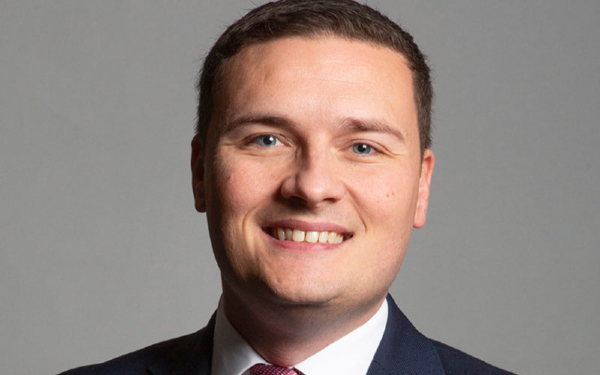
The Labour Party has pledged to reform the Mental Health Act 1983 if elected to power at the next general election.
Shadow health and social care secretary Wes Streeting told the House of Commons today that the party would introduce a bill to overhaul the act as part of its first legislative programme after polling day, which is due to take place by January 2025.
The news was welcomed by mental health bodies, in the light of the government’s decision – revealed in last week’s King’s Speech – to drop its manifesto pledge to reform the MHA during the current parliamentary term.
Criticism of government decision to shelve MHA reform
Social work leaders and charities heavily criticised the decision, saying it represented a missed opportunity to tackle high rates of detention, racial disparities in the use of the act and the inappropriate sectioning of autistic people and those with learning disabilities.
Streeting echoed these comments in a debate today on the NHS.
“The treatment of people with learning disabilities and autism under the current act shames our society,” he added.
“The disproportionate impact on black people, who are four times more likely to be sectioned than white people, is appalling. Prisons and police cells are no place for people with mental ill-health.”
Streeting said he could not understand why the government had “broken their promise” to amend the legislation and added that Labour would “reform the Mental Health act in our first King’s Speech”.
Labour’s promise comes with the party about 20 percentage points ahead of the Conservatives in opinion polls (source: UK Polling Report) and widely tipped to win an overall majority at the next election.
Labour pledge welcomed
The news was welcomed by psychiatrist Simon Wessely, who chaired the 2017-18 Independent Review of the Mental Health Act for Theresa May’s government.
Very welcome announcement from @wesstreeting on mental health act reform. There was widespread disappointment it disappeared from the King’s Speech so good to have this commitment. I hope that the support this had received from all the parties now resumes https://t.co/2VrLQcLC8Z
— Simon Wessely (@WesselyS) November 13, 2023
His sentiments were echoed by the Royal College of Psychiatrists and the charity the Centre for Mental Health, which tweeted: “We welcome Labour’s commitment today to modernise the Mental Health Act in its next general election manifesto. We’re calling on all political parties to take this step, so that this vital but outdated legislation is made fit for practice.”

Minister for care Helen Whately (Credit: Department of Health and Social Care)
In today’s House of Commons debate, care minister Helen Whately said the government remained committed to MHA reform.
“I recognise the disappointment that the mental health bill was not included in the King’s Speech, but I can assure honourable members that this government are committed to achieving genuine parity between mental health and physical health, improving the care of those detained under the Mental Health Act 1983 and bringing forward the bill when parliamentary time allows.”





 Assistive technology and dementia: practice tips
Assistive technology and dementia: practice tips  A trauma-informed approach to social work: practice tips
A trauma-informed approach to social work: practice tips 




 Find out how to develop your emotional resilience with our free downloadable guide
Find out how to develop your emotional resilience with our free downloadable guide  Develop your social work career with Community Care’s Careers and Training Guide
Develop your social work career with Community Care’s Careers and Training Guide  ‘Dear Sajid Javid: please end the inappropriate detention of autistic people and those with learning disabilities’
‘Dear Sajid Javid: please end the inappropriate detention of autistic people and those with learning disabilities’ Ofsted calls for power to scrutinise children’s home groups
Ofsted calls for power to scrutinise children’s home groups Seven in eight commissioners paying below ‘minimum rate for home care’
Seven in eight commissioners paying below ‘minimum rate for home care’
 Facebook
Facebook X
X LinkedIn
LinkedIn Instagram
Instagram
The ’83 Act was constructed to curb the powers of professionals making/taking decisions to detain people against their will in hospital and for treatment. The role of the Approved Social Worker pivotal in reaching the decision after the exhaustion of alternatives. The removal of this function will, one would hope, be reexamined.
And, as one would hope, the capital spend used to develop the growth of the low and medium secure psychiatric estate in 2006, as part of the, then, market stimulation exercises, will also be reviewed. Is the tail wagging the dog, again?
Having closed countless hospitals, and reduced the bed-spaces for the ooen ward NHS provision of services throughout the 1990’s, ‘
We’ created a new estate and needed patients to fill them.
The existing secure provision having already been privatised without any significant reductions in the prison transfered patient population, matching the otherwise unmet terms of security and public protection liabilities, ought to have happened ~ did it?
A review of the Act must also consider the clinical accuracy of the use of the Act and historically so.
The 1969 Act contained provision for the treatment of alcohol psychosis ~ imagine that today! Similarly, drug induced psychosis has been hived-off into a separate and now almost completely non-statutory set of services I’ll equipped for the most complex of cases ~ prison transfers now a thing of the past despite the increase of inmates with an active mental illness, if not adhd/autism ~ Prison Services, today, is calling out for help. Instead, it seems, that Buutzorg as a service model amongst the homeless is the going-forward thinking.
The diagnostic capture of adhd/autism/disassociative conditions within the MHA requires critical and forensic examination ~ has the Act been about a provider heads-in-beds economic necessity ~ community disposal of autistic patients with a disassociative condition better than prison transfers ?
It’s clear that there’s a genuine need for asylum, in the true sense of the term and for the hugely different patients’ groups, and not a reduction in bed spaces per population ~ a more targeted improvement in the range of locally available bed spaces.
As with OAP’s in Children’s Services it does require that Councils decide, once again, to step up. The current loosening of the legislation via Right Touch and Light Touch of the NHS Act 2022 and the Procurement Act 2023 allows for the likes of Buutzorg to flourish but really is this going-forward as is so casually said, I think not.
Providers of any ilk follow the money. Fettering their professional, and now commercial, interests is crucial.